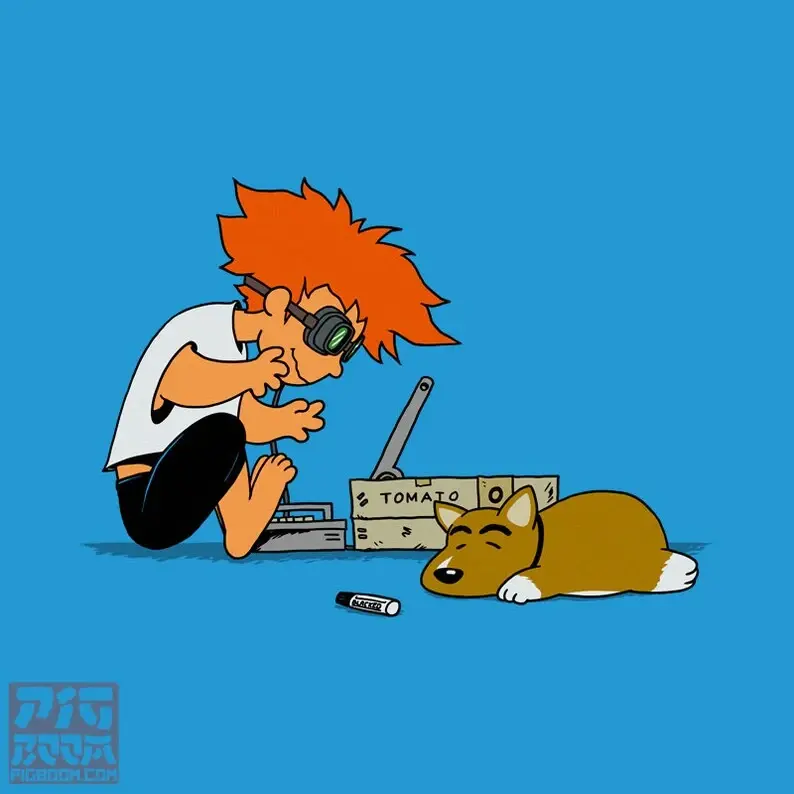I know it sounds hypocritical but hear me out. My city’s suburban streets were mostly built in the 1900s and 1910s, before cars were ubiquitous and before streets were built to accommodate them. So like 90% of the streets in the immediate suburbs (I’m talking 1 - 5 minutes from downtown) are either way too skinny to drive on or they don’t have driveways. In a select few streets it’s even both. And so you end up with streets that are littered with parked cars, and a lot of streets are two lane but end up functioning like one-ways. There have been moments where I drive on these streets because GPS told me to, and then I question my sanity because it really feels like a 1-way and yet there’s signs facing me. I mention this because I’m a pizza delivery driver and so I have to navigate these streets at least a few times a day, usually dozens of times if we’re offering coupons in those areas. And every time it becomes far more of a hassle than it has to be just because of how there are so many cars and so many people driving on them. I hate how we’ve built this city that had a downtown where people would walk to and shop around in, but now everybody drives to the superstores on the outskirts and uses the freeway to go to work. It’s like we’ve ruined the act of driving simply by forcing everybody to drive more.
I actually lived in Japan for a period, and while I wasn’t old enough to drive there, I noticed that people seemed to have a far better time driving on their ultra-narrow suburban streets, and I’m willing to hedge a bet that’s because not everything there was car-focused. Obviously once you got out into the rural regions more people drove, but in Tokyo especially people seemed to walk or take the train most of the time.
I wonder if maybe in an alternate universe where we didn’t place superstores and supermarkets and home depots a 1-hours walk away from the old suburbs, and where we didn’t develop this culture that everybody needed a car, would it be a much less irritating and frustrating experience driving around? Hell in that universe I might even be able to get my store’s drive times down a couple minutes.
I think you’d really like the youtube channel Not Just Bikes.
Fantastic channel. I lived in Amsterdam for 3 years, and living in a bike-centric society was absolutely amazing. Once you live in a city where you can choose not to drive because that’s easier, it’s hard to go back to a car-focused society.
In Japan, a prerequisite to owning a car is proving you have an off-street parking space for it.
In addition to the benefits while driving you mentioned, I also feel that the benefits of not seeing car storage literally everywhere you look in a city is a huge health and wellness benefit, as well as improving safety for pedestrians and cyclists.
A lot of American cities have the worst possible inversion of this sort of policy, where every residence constructed needs to have a certain minimum number of parking spots. This means that apartment buildings end up with large attached parking lots or towers, both balloon the cost of any housing construction and push buildings further away from each other so it’s less walkable. I really think it’s a negative feedback loop.
I lived in a city where they were building a residential district around light rail and built the entire area without parking spaces. I think there were a few spots for deliveries here and there, but we’re talking a dozen apartment high rises with no parking garages.
They just assumed that because there was light rail through the district, nobody would need a car there??
This is in the States, where stroads are the norm and nothing is walkable. So those people might be able to take the light rail to a small number of major employers on the other end of the light rail line… but their kids will have to be bussed to school, and their spouse will have to get a bicycle to go grocery shopping, and good luck going to the dentist across town.
What about having friends come to visit? They gotta park at the transit center and rail in?
A part of my city did that kind of thing with a new development about 10 years ago. No light rail but loads of bus stops, pedestrian paths, and protected cycle lanes. Apartment blocks had a guest / delivery lot and spots for electric charging ports but no other parking spots. It’s got its own school, shopping center, hospital, fire/EMS/police, but the moment you need to leave the bubble for whatever reason you now have to deal with the stroad fest and the limited bus stops.
Those are great, if the surrounding area has the same infrastructure and rail connections. Not so much when it’s by itself.
Hopefully there are plans in place to connect that area to others in the same fashion… but it’s in the states so I doubt it.
I understand your frustration. I live in a part of the world where the whole country is car centric.
There are parts in my country where without a car, you are basically handicapped from doing anything, as public transport is non existent, and there is no proper infrastructure for public walks.
So you have to buy a car in order to “survive”. To go to work, to go buy groceries, send your children to school etc. To add to that, you have the monthly commitment to pay for your car loans, or car maintenance.
And because there are so many cars on the road, most of the time there isn’t enough parking space in the suburb areas, so people will double park or even triple park.
“If there is no parking space, we will make our own parking space”, as we use to joke among ourselves.
Also, the overall productivity of our country slows down in my opinion, because everyone is stuck in a jam most of the time. For some people it takes them 1 or even 2 hours in extreme cases to go to work, or come home from work.
This is what happens when the government does not plan ahead, and have a clear vision. This should be planned like 20 to 30 years ahead. Instead, it is now too late for my country to implement all this effectively.
I have somewhat the same issue in my country, albeit not as bad (I’m so sorry you have to deal first hand with poor infrastructure). The vast majority of the streets are ~4 lanes wide, 2 for driving, two for parking. It takes up so much space, and then you have the people that will resist turning just one of those lanes to a cycling lane for whatever selfish reason they have.
There are large parts of my city that are only realistically accessible by bus or car, so I never go there.
undefined> @
My teenage son calls hazards the “park anywhere lights”. Magically, I can leave my car blocking an entire street for fifteen minutes because I put the blinky lights on.
I’m in a similar situation and the fallout from the pandemic has done amazing things for my family.
My spouse doesn’t have to drive two hours a day to sit in an office, we get to have lunch together, there’s time to run midday errands. And many things that I didn’t used to be able to do remotely, are suddenly accessible, like talking to my doctor or signing legal documents.
I feel that this problem has only got worse with the popularity of SUVs. I live in a small town in the UK with a large number or wealthy residents who love their posh Land Rovers. They make driving around the streets a mess - lots of waiting for people to pass due to an effective one way street or because their car is way too big and I can’t safely squeeze past them. If they all had regular cars like me traffic would be able to move a lot easier.
Hell I drive an SUV-hybrid and even I get dwarfed by some of the monster SUV’s and pickups I see on the roads.
What sucks too is a lot of people treat their cars like cement trucks whenever they turn. Just because your car is big doesn’t mean you need to slow to 5 mph to make a turn lol. A lot of big cars have tight turn radiuses and can make tight turns at normal speeds, yet it feels like every minivan driver has to treat it like an 18-wheeler going into the far lane whenever they turn.
Yooo tell me about it. I grew up in a nice city in India, and it was so damn-walkable but also car-friendly with great public transport when I was a child. I remember us being able to walk everywhere to get everything we need, and trees everywhere. There used to be so many shopping-streets or eatery-streets where you could just walk around, explore, and just hang out, walking all the while.
Nowadays, it’s asphalt everywhere. Wide roads and expressways taking over everything. Damn high temperature due to the roads absorbing all the heat without any trees to block the sun. It’s nigh impossible to make a plan to walk somewhere, because footpaths are disappearing slowly.
The only walkable parts of the city are in the richer areas, and they are specifically built so, ugh.
Removed by mod
Wow. Helpful comment right there. Sure you put a lot of thought into that one. I’ll keep that in mind next time the bus is out of order, there’s no bike lanes, and it’ll take me a 90 minute walk to get groceries. Thanks.
Removed by mod





